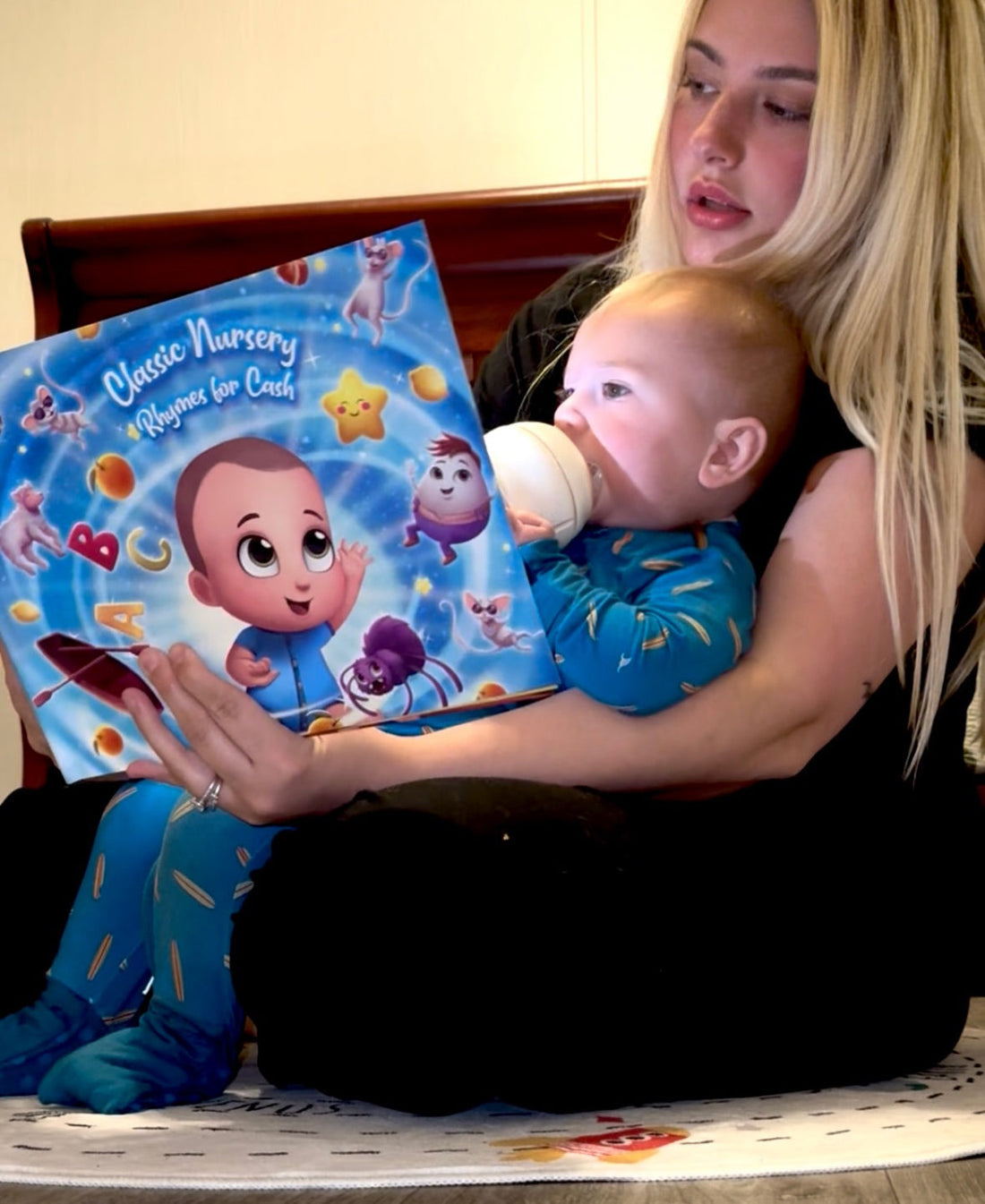
The Benefits of Introducing Books Early: Why Reading to Infants Matters
Share
Introducing books to your baby during infancy is one of the most powerful ways to support their early development. Whether it’s through reading aloud or simply sharing books during playtime, the benefits of reading from an early age are immeasurable. In this post, we’ll explore why reading to your infant is so important and share research-backed insights into how it helps foster language development, cognitive growth, and emotional bonding.
Enhances Language Development
Reading aloud to your infant—even before they can understand words—has a profound impact on their language development. According to the American Academy of Pediatrics (AAP), children who are read to from a young age tend to have larger vocabularies and more advanced language skills. Hearing a variety of words and sentence structures boosts their ability to recognize sounds and words later on, setting the foundation for fluent speech and reading skills.
Studies have shown that babies who are read to regularly have better language outcomes, including improved communication skills, when compared to children who have not been read to as frequently.
Fosters Cognitive and Brain Development
Infants’ brains are developing at a rapid pace in the first few years of life, and reading plays a crucial role in supporting this growth. Research indicates that early exposure to books enhances cognitive skills, such as memory, attention, and problem-solving. When babies look at pictures, listen to your voice, and explore books with their hands, they are not just building vocabulary—they are also developing neural connections that are essential for learning.
The National Institute for Literacy reports that reading aloud to young children has a direct effect on brain development, strengthening neural pathways related to learning, memory, and emotional understanding.
Strengthens Emotional Bonding
Reading to your infant is also an excellent opportunity to strengthen the emotional bond between you and your baby. The physical closeness, the sound of your voice, and the shared experience of looking at pictures together foster a sense of security and trust. This positive attachment not only helps your baby feel safe and loved but also promotes emotional regulation and social development.
According to Zero to Three, a leading resource for early childhood development, shared reading experiences help nurture emotional bonds by providing comfort and establishing a loving routine.
Builds a Foundation for Future Learning
The early years are a critical period for brain development. Introducing books as early as infancy sets the stage for lifelong learning. Studies have shown that early literacy skills correlate with later academic success, and children who are exposed to books early are more likely to enjoy reading as they grow older. Early reading also fosters curiosity, which is a crucial skill for future learning in all subjects.
The Reading Rockets program highlights that early exposure to books, even in infancy, helps develop pre-reading skills, such as understanding the structure of stories, recognizing patterns, and interpreting visual cues.
Creates a Love of Reading and Books
Introducing books to your infant helps them develop a positive association with reading and books. Starting early means that books will become a regular part of their daily routine, setting the stage for lifelong reading habits. The earlier children are exposed to books, the more likely they are to enjoy them and seek them out as they grow older.
Research from the Harvard University Center on the Developing Child suggests that regular exposure to reading can instill a love of books and learning that lasts throughout childhood and into adulthood.
How to Start Reading to Your Baby: Tips for Parents
-
Start Early: Even newborns benefit from hearing your voice and looking at simple, colorful books.
-
Choose Simple, High-Contrast Books: Babies are attracted to bold patterns and bright colors, so high-contrast books are ideal in the early months.
-
Make It Interactive: Point to pictures and talk about what’s in the book to keep your baby engaged.
-
Establish a Routine: Incorporate reading into your baby’s bedtime routine for consistency.
-
Use Books That Match Your Baby’s Developmental Stage: As your baby grows, introduce more complex books with different textures, sounds, and interactive features.
By introducing books early, you are giving your baby the gift of learning and nurturing their natural curiosity. This simple yet profound activity not only promotes cognitive, language, and emotional development, but also strengthens your bond and sets the stage for a lifetime of love for reading.
